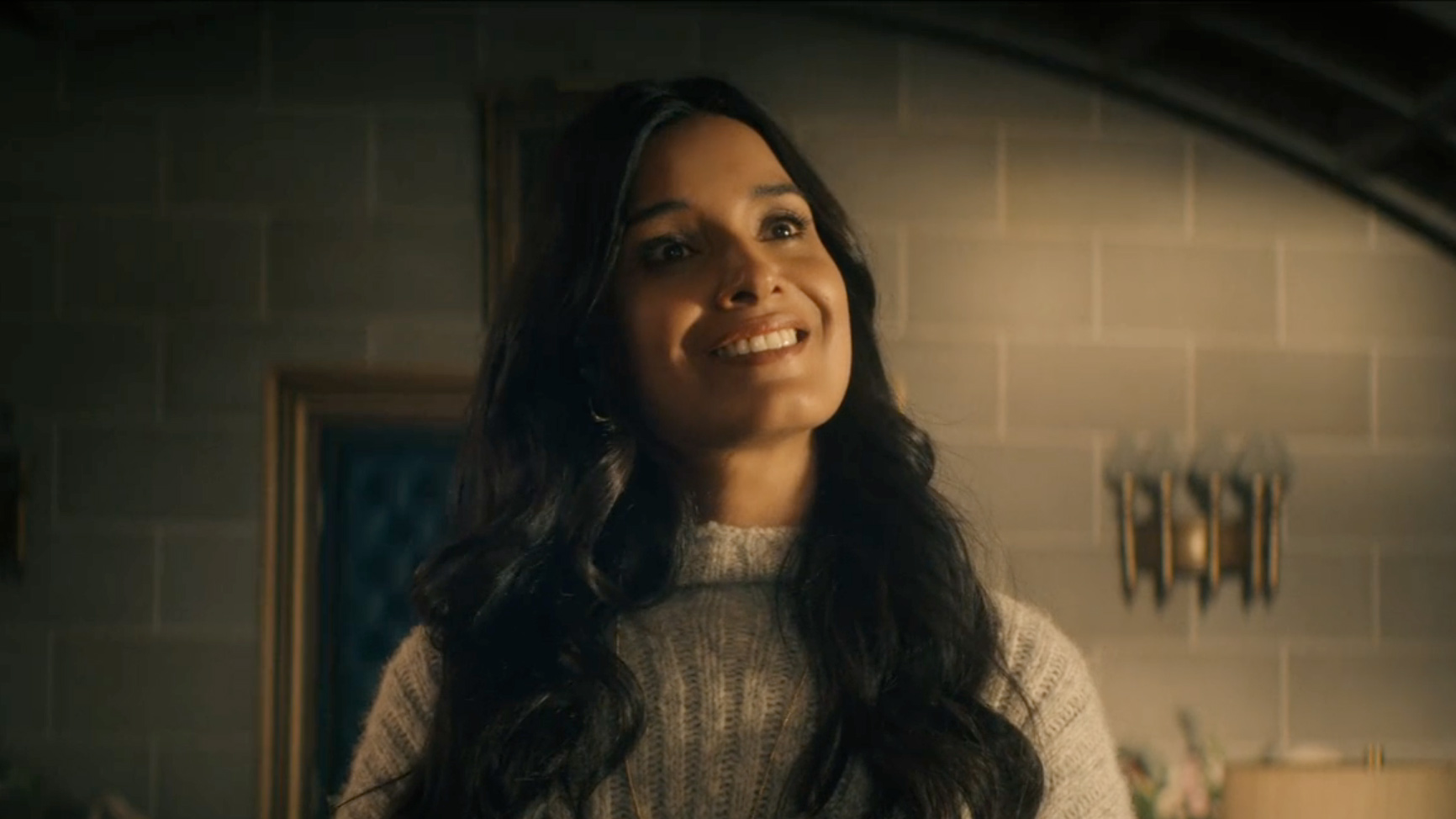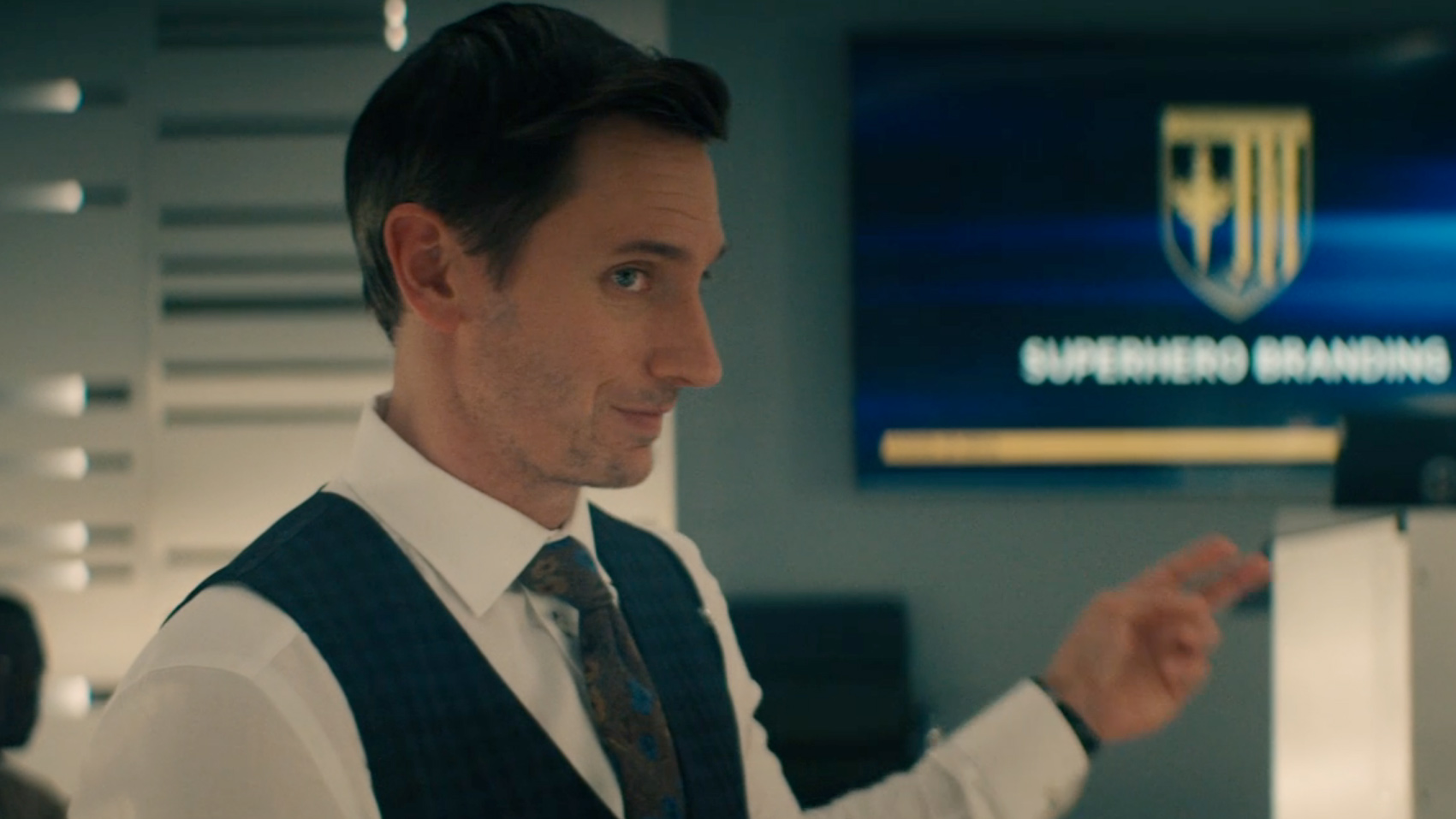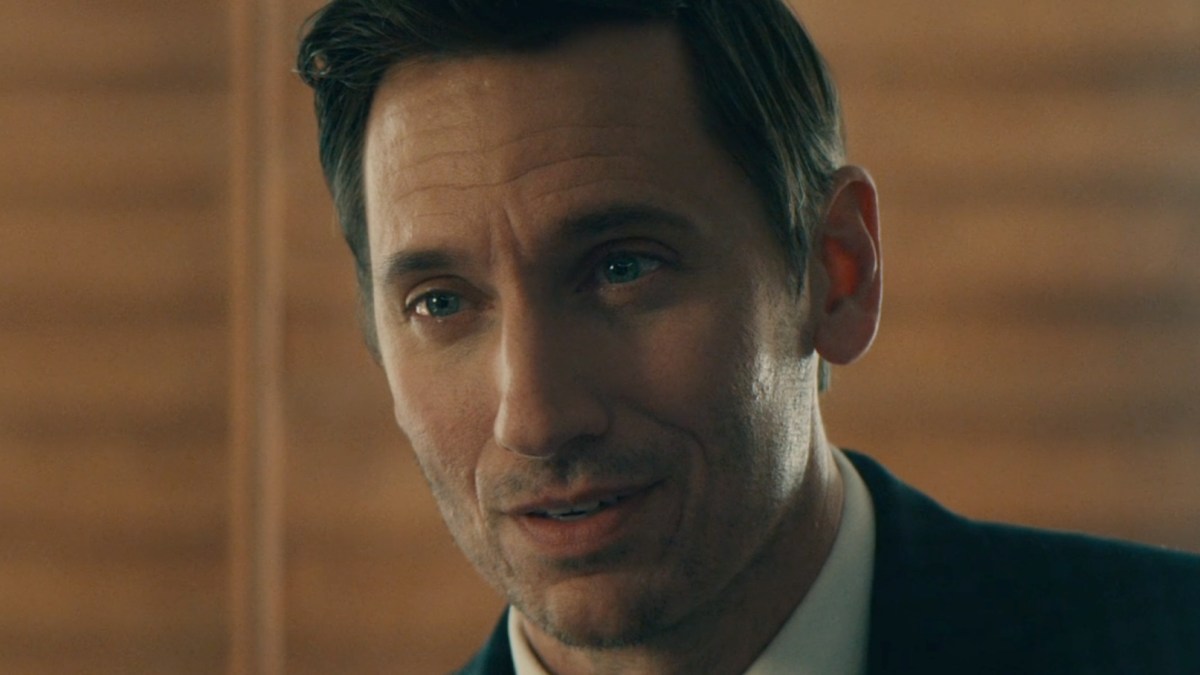Warning: The following recap and review covering Tek Knight’s appearance Gen V Season 1, Episode 4, “The Whole Truth,” contains spoilers.
One advantage that The Boys has always had over many of its streaming contemporaries is that it has always had a strong understanding of episodic structure. A lot of streaming seasons can tend to blur together, divided into arbitrary chunks of content to be parceled out in weekly increments. While The Boys is a heavily serialized show with show- and season-long arcs, the series has always had a decent understanding of how to structure a satisfying individual episode of television.
Gen V looks to have inherited this particular skillset from its parent series. “The Whole Truth” obviously furthers the season-long mystery around Luke’s (Patrick Schwarzenegger) breakdown and ends with a cliffhanger that leads directly into the next episode, but it functions as a self-contained unit of narrative. Writer Jessica Chou accomplishes this by building “The Whole Truth” around that classic television concept: the special guest star.
“The Whole Truth” introduces the character of Tek Knight (Derek Wilson), whose visit to the campus provides a framework for the episode. He arrives, stirs things up, and then leaves. In doing so, he provides “The Whole Truth” with a clean structure. A celebrity detective hosting a true crime show on the Vought+ network, Knight looks to get to the bottom of Luke’s actions. Asked how he hopes to accomplish this, he explains his plan, “Misdirection, obfuscation. Find a patsy and destroy their life.”
Related: For Fans of The Boys, Gen V is a Passable Elective

Knight is an interesting character. Like many of the major characters in The Boys, he originated in Garth Ennis and Darick Robertson’s comic book. He was a member of the team “Payback”, an obvious analogue for the Avengers. However, while that team appeared in flashbacks in “Barbary Coast”, including members Soldier Boy (Jensen Ackles), the Crimson Countess (Laurie Holden) and Black Noir (Nathan Mitchell), Knight was not affiliated with the group.
As such, Knight’s appearance in Gen V is something of a big deal. Wilson’s casting generated press coverage. Given the obvious fan anticipation of Knight’s appearance, it feels notable that “The Whole Truth” largely reinvents the character – give or take his “unusual proclivity.” In the comics, Knight is an obvious stand-in for Iron Man. However, Gen V presents him as a master detective rather than a technological innovator, more evocative of John Constantine or Detective Chimp than Tony Stark.
There is perhaps something deliberate in this. One of the more interesting points of difference between Gen V and The Boys is that Gen V feels like a throwback. The show’s touchstones seem to skew more towards the Fox X-Men films than the Marvel Cinematic Universe. As such, this low-key take on Knight, eschewing a comics-accurate suit-of-armor for a more generic look, evokes the approach of earlier comic adaptations like Constantine or Dolph Lundgren’s Punisher.
Although he has never actually appeared on The Boys, Knight still feels like something of an ambassador from the parent show. He is an adult superhero, a graduate of Godolkin University, and a celebrity. Indeed, he has been offhandedly mentioned in The Boys, so exists as part of that world. When he arrives in Gen V, he serves as an embodiment of a certain sort of character, the “supe” as they appear in The Boys: narcissistic, corrupt, cynical, fame-hungry.
Knight arrives at Godolkin University with his film crew and decides that he is going to point the finger at an innocent party as a way to provide closure to Luke’s tragedy. He doesn’t care what happened or why, just the narrative that he can construct around it. He harnesses his gifts like a cheap trick, performing an interrogation of Marie (Jaz Sinclair) for the “Superhero Branding” class. “And that’s how you break a witness, folks!” he boasts at the end, to applause. He pauses for selfies after.
This is heroism as it is performed on The Boys. However, “The Whole Truth” uses Knight to draw a point of distinction between those veteran heroes in the Seven and the students at Godolkin University. After Marie acknowledges her role in slowing Luke’s rampage, Jordan (Derek Luh and London Thor) demands, “What’s your angle?” Marie replies, “My angle is that sometimes people don’t have an angle. Sometimes they’re just actual human beings.” She seems genuine.
Something similar happens as Andre (Chance Perdomo) bristles under Knight’s scrutiny. Sitting next to his father, the hero Polaris (Sean Patrick Thomas), Andre lashes out at the cynicism of both the detective and his father, who seek to bend a tragedy to suit their own narratives. “What kinda hero’s too fucking chickenshit to do anything heroic?” Andre demands, seemingly of both of the older men. Again, Gen V is drawing a line between itself and the characters of The Boys.
It’s a nifty trick, a way of defining the relationship between the two shows. It acknowledges that they exist in the same world while allowing that they each have slightly different perspectives. That said, there is a sense in which “The Whole Truth” suggests that maybe Gen V should be a bit more cynical in tackling its subject matter. Knight is a wonderfully biting and cynical piece of commentary, a scathing critique on the cynicism and hyper-sexualization of the true crime industrial complex.
Gen V is essentially the story of the aftermath of a college campus shooting, a murder-suicide in which a young student lashed out and then claimed their own life. The show continues to struggle with that, aligning itself with the perspective of the shooter rather than taking a more objective viewpoint. At times, it feels like Gen V is too sympathetic to its young heroes to ever hold them to task or subject them to scrutiny.
Related: Gen V Reveals First Look at Cameo from Jensen Ackles’ Soldier Boy

Still, Knight’s presence works as an exploration of how the media sensationalizes such events. There have recently been debates about how such coverage exploits tragedy for ratings and how this intrusive approach can traumatize survivors. Knight is seeking to turn these horrific events to his own advantage. It’s an approach that feels very in line with the skepticism that The Boys holds for so much modern media. Everything – even lived experience – is just content to be packaged.
However, “The Whole Truth” goes even further than that, in the sort of absurdist and juvenile way that The Boys will often underscore its points. Even before getting to that final confrontation between Knight and Dean Shetty (Shelley Conn), “The Whole Point” stresses that Knight’s lurid and voyeuristic approach to true crime coverage sexualizes violence in a way that feels extremely invasive and uncomfortable. In the most literal way possible, Knight violates these spaces and objects.
“This whole case is a rabbit hole into the unknown, and I won’t stop plunging its depths,” he promises viewers in the opening monologue of his show. In his hastily composed closing thoughts, he assures his audience, “It’s easier to probe the dark hole of conspiracy than accept a tragedy with no meaning or motive.” On discovering that Andre has been sleeping with Cate (Maddie Phillips), Knight challenges the young man, “How long have you been eating Golden Boy’s girlfriend’s hole?”
Archival footage reveals that such language and framing is not uncommon. Rufus (Alexander Calvert) is introduced watching Knight narrate how a victim was seemingly murdered by his superpowered partner, layering his metaphors with heavily sexual language – he asks whether the victim suffered “the unhappiest of all happy endings, crushed under all 700 pounds of his girlfriend, or was someone smothering the truth?” Even the title of Knight’s show – The Whole Truth – is a double entendre.
Naturally, this outlook extends to his personal life as well. Knight sees his work as inherently sexual in nature. “Digging for the truth is a rush – it’s better than sex,” he boasts to Shetty. When she arranges for a private meeting away from the cameras, his first assumption is that she is offering him “a blowie.” However, Shetty reveals that Knight has a brain tumor that – in a plot point lifted directly from the comics – has created a compulsion for Knight to have sex with anything that has a hole.
It is not subtle, but it is pointed. It gets at the way in which this sort of media coverage of violence is often inherently sexualized by a sensationalist media. Much has been written about the tendency of procedurals like CSI, Law & Order and Criminal Minds sexualize depictions of violent acts. As Darald (Jack McBrayer) opined of the fictitious CSI knock-off Crime Scene in Forgetting Sarah Marshall, these shows have a tendency to “mix the sexuality and violence” in a way that feels lurid and exploitative.
It’s clever and well-observed. It feels very much in line with how The Boys tends to approach such subject matter, offering commentary on the worst aspects of contemporary media by simply heightening an existing tendency to the point of absurdity. “The Whole Truth” is a solid episode of Gen V. It’s good, clean storytelling that once again threads that fine line of underscoring the relationship between Gen V and The Boys while also distinguishing the two shows from one another.
If you’re looking for more on the show, check out Darren’s review and recap of the first three episodes of Gen V.






Published: Oct 6, 2023 12:00 pm